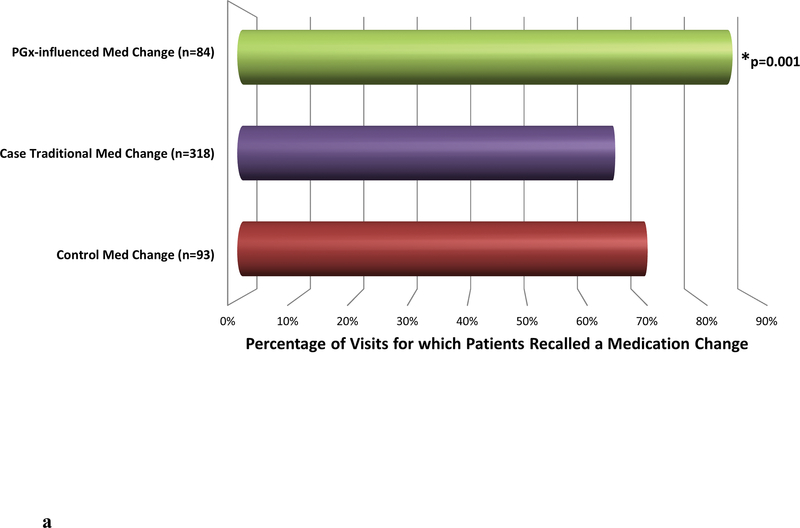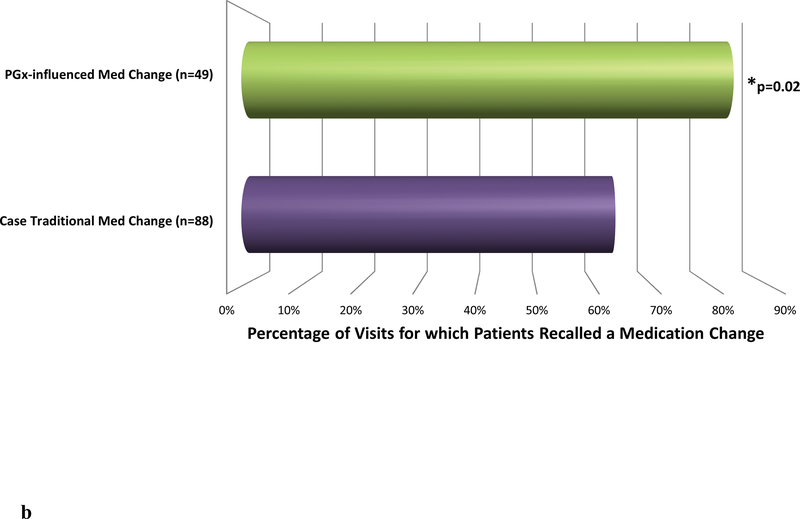Figure 2. Patient Recall of Medication Changes.
a. The graph displays the percentage of visits where at least one medication change was recalled by the patient. Case patient visits with only non-pharmacogenomically-influenced (traditional) medication changes were combined with control medication change visits for statistical analysis. This combined group was then compared to all visits with at least one pharmacogenomically-influenced medication change. The “n” value represents the number of visits analyzed in each group. Pharmacogenomically-influenced medication changes were more often recalled compared to all non-pharmacogenomically-influenced medication changes (case traditional and control medication changes) (OR=3.3 [1.6–6.7], p=0.001).
b. A subset of case patients in the study had at least one pharmacogenomically-influenced medication change visit and at least one separate non-pharmacogenomically-influenced (traditional) medication change visit. Medication change recall was examined for these patients’ visits. The “n” value represents the number of visits analyzed in each group. Pharmacogenomically-influenced medication changes were significantly more often recalled compared to non-pharmacogenomically-influenced medication changes (OR=3.4 [1.2–9.3], p=0.02).


